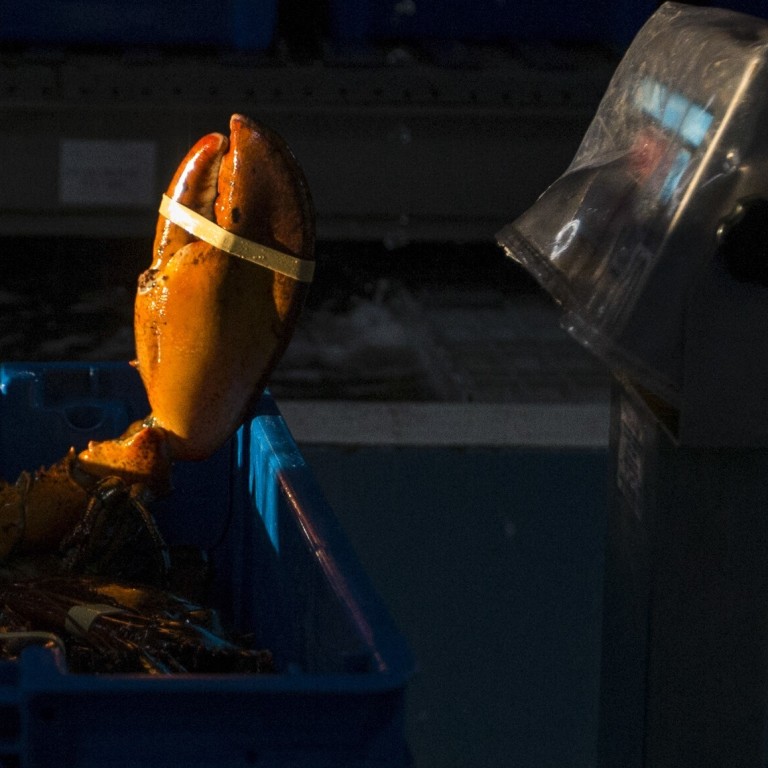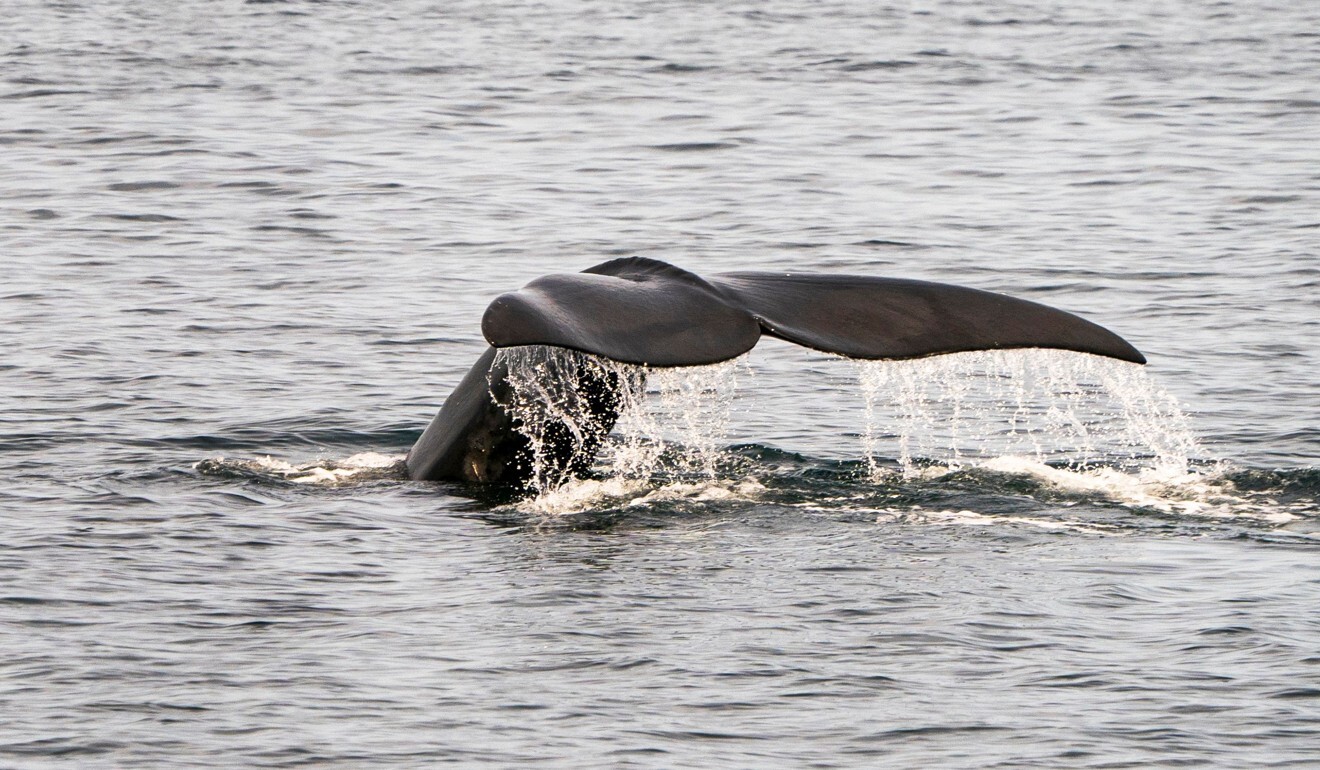
Eating Boston lobster in Hong Kong could hasten demise of North Atlantic whale species
- The lobster is harvested using traps that are also entangling the North Atlantic right whale, WWF-Hong Kong says
- Fewer than 250 mature North Atlantic right whales remain in existence, green group notes
Hongkongers have been urged to avoid eating Boston lobster after a leading green group issued a red alert on the seafood for the first time, warning the way it was harvested threatened an endangered whale species.
The alert on the crustaceans was contained in a seafood guide published by WWF-Hong Kong on Tuesday, which called on diners to opt for rock lobster from Western Australia instead.
The recommendations, which are updated every few years, track the sustainability of more than 70 types of seafood popular in the city. Species are evaluated according to a variety of criteria, including their population size, then categorised based on the harm done to marine ecosystems for future generations, with green for “recommended”, yellow for “think twice” or red for “avoid”.

The Boston lobster, imported from the United States and Canada, has always been in the green or yellow groups in previous guides. It was moved into the red category after the critically endangered North Atlantic right whale became increasingly entangled in traps meant for the lobster in the Gulf of Maine and surrounding bodies of water.
“Although the Boston lobster is not threatened with extinction, its harvesting ground overlaps with the habitat of the North Atlantic right whale,” said ocean conservation officer Michelle Wong Hei-wan.
“The ropes of the traps set for the lobsters entrap the whales, leading to them getting injured or even dying.”
Fewer than 250 mature North Atlantic right whales remained, she noted.

Hong Kong consumes the second-largest amount of seafood per capita in Asia, importing 3,321 tonnes of Boston lobsters between January last year and this April.
Wong urged Hongkongers to seek alternatives such as rock lobster, which she said was similarly priced.
“We will definitely talk to restaurants and people in the food industry about the new seafood guidelines, and though we can’t be sure exactly what will happen at this stage, we trust that they will adopt some measure of changes because they care about their image,” Wong said.
Bigger shrimp and more shellfish in parts of Hong Kong waters after trawling banned: study
Jeff Ng, manager of Sing Kee Seafood Restaurant in Sai Kung, said most Chinese seafood restaurants preferred Australian lobster species such as coral lobster over the Boston ones. “There is not much meat inside Boston lobsters,” he said.
The Boston variety was mostly served by hotels and to Western diners, he noted.
“We normally see Boston lobsters on cold dishes served in hotels because the costs are cheaper,” he said, adding that a Boston lobster usually cost HK$100 (US$13) to HK$500, while Australian lobsters were priced at roughly HK$640 per 600 grams at the Sai Kung restaurant.
“Sometimes we will offer Boston lobsters in cheaper dinner packages, but it is not common here,” Ng said. “Our customers, who are usually fine with paying more money, prefer Australian lobsters.”
He estimated the restaurant usually bought a little over 10 lobsters per week.
“We order very few lobsters each week. We will supply according to the demand of the customers. Thus, I don’t think our restaurant will really change [our menu],” he said in response to the Seafood Guide.
Other species listed in WWF-Hong Kong’s red category include bluefin tuna, eel and shark, while species in the green category include abalone, scallop and the red king crab.
‘Father of ocean conservation’ Brian Morton inspired many in Hong Kong to protect marine environment
Wong called on the government to better regulate labelling on seafood products, as some packaging did not carry sufficient information.
“We would like the government to push brands to label their seafood with the species’ name, its place of origin and whether the seafood was wild caught or farmed,” Wong said.
Members of the public could also be more proactive in choosing to consume sustainable seafood by checking the seafood guide online before ordering dishes and avoiding purchasing fish that was too small, she said.

